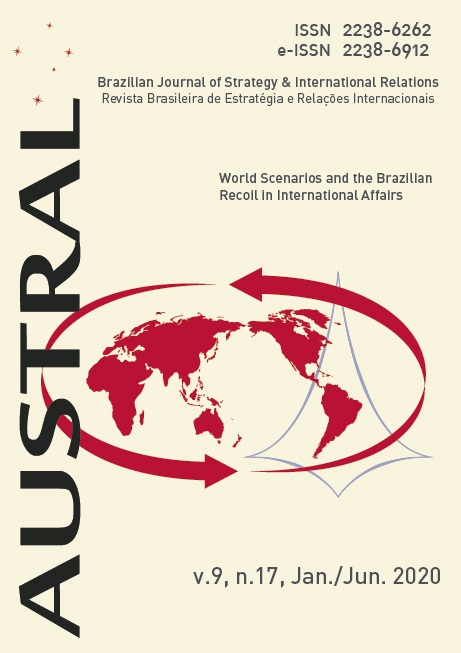ANALYSIS OF THE BRAZILIAN CRISIS: PRELIMINARY EFFECTS ON SOUTH-SOUTH COOPERATION
DOI:
https://doi.org/10.22456/2238-6912.98718Keywords:
South-South Cooperation, Brazilian Fiscal Regime, Brazilian CrisisAbstract
The current Brazilian political and economic context is one of intense crisis and it will inevitably impact public policies. In 2000’s, practices of International Cooperation and Development (ICD) gained emphasis through organized experience sharing between developing country governments and international organizations. Brazil deepened its partnerships with others Southern countries, a practice that came to be known as South-South Cooperation (SSC). However, following the impeachment of President Dilma Rousseff in 2016, the incoming administration introduced government spending limits in the form of a Constitutional Amendment (95/2016) which structurally decreased resources available for SSC and consequently limited possibilities to continue deepening international involvement. This article analyzes the first effects of the new fiscal regime for SSC using a bibliographic review and a case study of the Social Protection.Org platform which is managed by the International Policy Centre for Inclusive Growth (IPC-IG), a centre of research excellence established through a partnership between the United Nations and Brazilian government.Downloads
Download data is not yet available.
Downloads
Published
2022-11-11
How to Cite
Silva, P. A. de O., & Almeida Filho, N. (2022). ANALYSIS OF THE BRAZILIAN CRISIS: PRELIMINARY EFFECTS ON SOUTH-SOUTH COOPERATION. AUSTRAL: Brazilian Journal of Strategy & International Relations, 9(17). https://doi.org/10.22456/2238-6912.98718
Issue
Section
Articles


